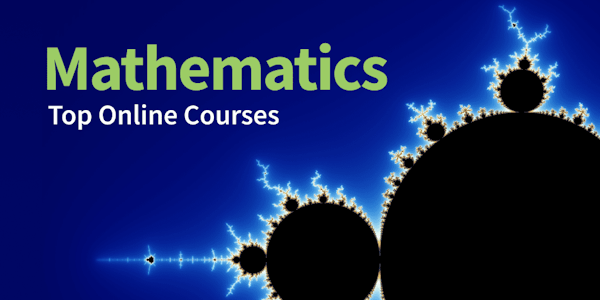Essential Mathematics for Machine Learning
Indian Institute of Technology Roorkee and NPTEL via Swayam
-
65
-
- Write review
Overview
Machine learning (ML) is one of the most popular topics of nowadays research. This particular topic is having applications in all the areas of engineering and sciences. Various tools of machine learning are having a rich mathematical theory. Therefore, in order to develop new algorithms of machine/deep learning, it is necessary to have knowledge of all such mathematical concepts. In this course, we will introduce these basic mathematical concepts related to the machine/deep learning. In particular, we will focus on topics from matrix algebra, calculus, optimization, and probability theory those are having strong linkage with machine learning. Applications of these topics will be introduced in ML with help of some real-life examples.INTENDED AUDIENCE :UNDERGRADUATE AND POSTGRAUATE STUDENTS OF COMPUTER SCIENCE/MATHEMATICS/DATA SCIENCE…PREREQUISITES : NoneINDUSTRIES SUPPORT :Microsoft/Amazon/Intel/…
Syllabus
Week 1:LINEAR ALGEBRA BASICS- Vector spaces and subspaces, basis and dimensions, linear transformation, four fundamental subspaces
Week 2:MATRIX THEORY- Norms and spaces, eigenvalues and eigenvectors, Special Matrices and their properties, least squared and minimum normed solutions
Week 3:MATRIX DECOMPOSITION ALGORITHMS- SVD: Properties and applications, low rank approximations, Gram Schmidt process, polar decompositionWeek 4:DIMENSIONS REDUCTION ALGORITHMS and JCF- Principal component analysis, linear discriminant analysis, minimal polynomial and Jordan canonical form
Week 5:CALCULUS – Basic concepts of calculus: partial derivatives, gradient, directional derivatives, jacobian, hessian, , convex sets, convex functions and its properties
Week 6:OPTIMIZATION – Unconstrained and Constrained optimization, Numerical optimization techniques for constrained and unconstrained optimization: Newton’s method, Steepest descent method, Penalty function method
Week 7:PROBABILITY – Basic concepts of probability: conditional probability, Bayes’ theorem, independence, theorem of total probability, expectation and variance, few discrete and continuous distributions, joint distributions and covariance.
Week 8:SUPPORT VECTOR MACHINES – Introduction to SVM, Error minimizing LPP, concepts of duality, hard and soft margin classifiers
Week 2:MATRIX THEORY- Norms and spaces, eigenvalues and eigenvectors, Special Matrices and their properties, least squared and minimum normed solutions
Week 3:MATRIX DECOMPOSITION ALGORITHMS- SVD: Properties and applications, low rank approximations, Gram Schmidt process, polar decompositionWeek 4:DIMENSIONS REDUCTION ALGORITHMS and JCF- Principal component analysis, linear discriminant analysis, minimal polynomial and Jordan canonical form
Week 5:CALCULUS – Basic concepts of calculus: partial derivatives, gradient, directional derivatives, jacobian, hessian, , convex sets, convex functions and its properties
Week 6:OPTIMIZATION – Unconstrained and Constrained optimization, Numerical optimization techniques for constrained and unconstrained optimization: Newton’s method, Steepest descent method, Penalty function method
Week 7:PROBABILITY – Basic concepts of probability: conditional probability, Bayes’ theorem, independence, theorem of total probability, expectation and variance, few discrete and continuous distributions, joint distributions and covariance.
Week 8:SUPPORT VECTOR MACHINES – Introduction to SVM, Error minimizing LPP, concepts of duality, hard and soft margin classifiers
Taught by
Prof. Sanjeev Kumar, Prof. S. K. Gupta





